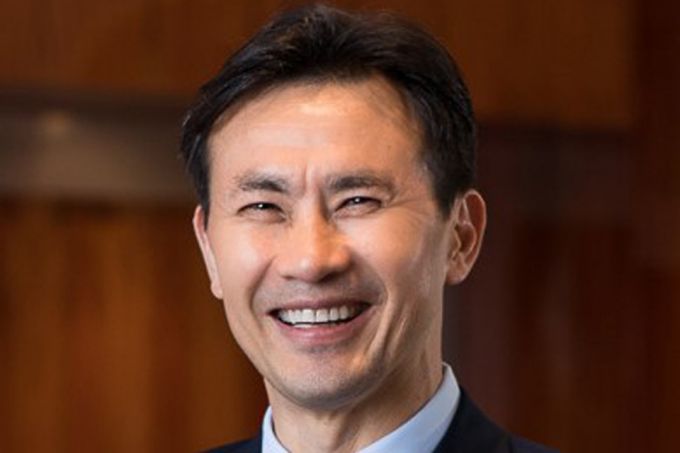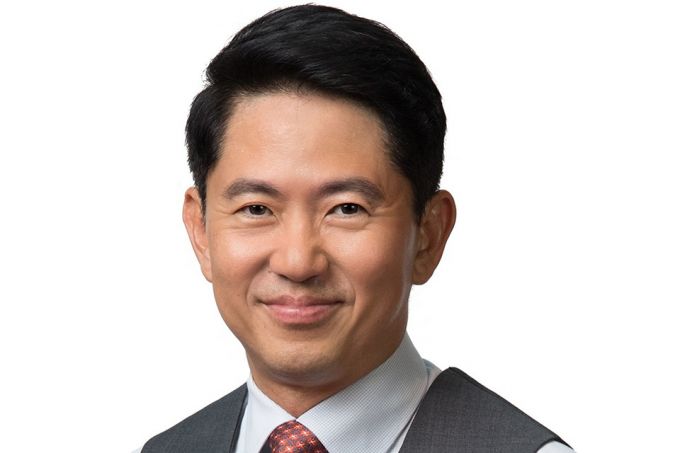WE STARTED the turn of the decade on a sanguine note, when a novel coronavirus named “Covid-19” – which initially seemed to be just another headline in the news, among many others – escalated into a global pandemic that has since put the world on brakes, with numerous countries in lockdown and more than five million (and counting) confirmed cases worldwide. In a matter of months, the normalcy that we had taken for granted unravelled, leaving in its wake a dreadful chapter in the making for future history textbooks.
Financial markets, businesses, large and small, and communities across the globe have been impacted one way or another. Focusing on family offices for the purpose of this article, we saw that dedicated teams or structures set up to look after an ultra-high net worth family’s interests in both financial and non-financial aspects – including family governance, legacy preservation, investment, education, philanthropy and more – were not spared either.
It is hard to pinpoint which was the world’s first family office. The Rockefellers and the House of Morgan, renowned American family offices established in the 19th century, are widely recognised as some of the earliest examples of a modern family office – but history suggests that the concept of seeking stewardship for one’s wealth traces back to far earlier eras. Despite being in different parts of the world, prominent rulers, such as Emperor Augustus Caesar from the Roman Empire, Emperor Shenzong of China’s Song dynasty and Emperor Akbar of India’s Mughal dynasty, appointed a trusted group of people to manage their estates and other assets – not unlike how family offices work today.
In essence, family offices follow wherever wealth goes. Traditionally concentrated in Europe and the United States, they have seen an emergence in Asia in recent years, as the region takes centre stage as a fast-growing economic powerhouse. According to Wealth-X’s 2019 Billionaire Census, Asia was home to around 700 billionaires as of 2018, over a quarter of the world’s 2,604 billionaires. Closer to home, the Monetary Authority of Singapore shared that the number of family offices in Singapore quadrupled between 2016 and 2018.
Unlike their Western counterparts which have existed for multiple generations till date, family offices in Asia are relatively young – the majority are still in their first or second generations and are headed by the patriarch or matriarch, and their businesses continue to serve as the family’s main vehicle for wealth generation. This definition is important, as it helps to explain several differences between how our Asian and Western family office clients are responding to the pandemic.
At the start, many of our Asian family office clients assumed that Covid-19 would pan out like the Severe Acute Respiratory Syndrome (Sars) outbreak in 2003, a chapter they have experienced and are familiar with: episodic, with normalcy resuming in months. However, as Covid-19’s impact became increasingly pronounced and protracted, they have come to realise that these are unprecedented times, and that the new world that awaits us when this pandemic subsides will be profoundly different from the world from which we had entered it.
Today, they remain uncertain when this will come to end. The pandemic’s impact on their business has been a canary in a coal mine, an indicator of what is to come in the financial markets – and with their own supply chains and customer demand taking a hit, they are of the mind that there is more downside to be expected. As such, we see our Asian family office clients taking a cautious stance in their investments, trading mainly in blue chips and refraining from establishing long positions until they see business activity levels bottoming. Liquidity is key for them, so they are also focusing on boosting it by raising cash for potential business needs, and keeping their powder dry for good investment opportunities ahead.
WESTERN FAMILY OFFICES
In contrast, family offices in the West are largely in their third to fifth generations. They would have maintained a higher level of liquid assets in their portfolios, especially given the dearth of deep-value and distressed assets for them to invest in over the past two years. They also do not face the same need as Asian family offices to carve out “emergency” cash in their portfolios to fund family-owned operating businesses, having either fully divested their businesses or become passive shareholders over time. For these family offices, current valuations (which they believe will soon be even more attractive) are beginning to look like buying opportunities.
While they are well-positioned to take advantage of material corrections in the market, their interest at this point is not on yield assets such as fixed income or Reits. Instead, they are focusing on deep value opportunities that will provide long-term capital appreciation.
With a stronger liquidity profile and more patient capital as compared to their Asian peers, these family offices tend to assume a long-term, “buy-and-hold” approach – for them, time in the market is far more important than timing the market. From their perspective, the key consideration is how cheap they can buy assets at, without taking on leverage. Covid-19 prompts reflection of broader structural issues.
While most family offices have in place substantial capital buffers and back-up plans to ride through the waves of Covid-19 and emerge intact, the crisis has undoubtedly thrown a stark light on their vulnerability – be it in terms of their mortality, or the possible transience of their hard-earned assets.
This is particularly so for Asian family offices, whose relatively young foundation leaves them subject to uncertainties that could rattle the family’s position. Previously focused on growing their empire, the pandemic is now forcing them to stop in their tracks and look instead at protecting it. Today, “staying” wealthy has become the new “getting” wealthy.
Moving beyond reviewing investments, businesses and granular day-to-day issues, clients are now taking the chance to deep-dive into broader structural issues that may not have been top-of-mind for them in the past. In recent months, we have been engaging clients on more strategic issues such as wealth protection and preservation, succession planning and family governance, and helping them to plan better with stability and longevity in mind. Domiciliation is another topic that has popped up in our conversations, as crises also bring to mind the importance of ensuring loved ones and assets are in a safe jurisdiction.
We define family legacy in the context of four pillars: business capital, financial capital, human capital and social capital. The first two usually pique our clients’ interest most during normal times, but social capital has shifted to the fore ever since Covid-19 came into play.
Success stories from older family offices such as the Rockefeller and Walton families have trickled down over the years, enabling other families to see that a collective focus on driving positive societal change not only strengthens the family’s values, but can also be a rallying cry for subsequent generations to stay aligned and be of the same mind. It also generates goodwill – a precious asset that can greatly propel the family’s reputation and future growth, and can only be earned, not bought.
DRIVING SOCIETAL CHANGE
Some of our clients have shared that they intend to deploy resources to support communities in their home countries through these trying times. Others have expressed interest in giving back through the likes of venture philanthropy, such as by helping social enterprises under the care of DBS Foundation (a dedicated foundation for nurturing social enterprises in the region) to further their cause through funding or mentorship, or by setting up philanthropy trusts. A trust is a wealth planning tool and when used for the purpose of philanthropy, presents a flexible way for the family and generations after to give back to society. The founder simply needs to choose a certain cause to support; future generations can then assess and decide at that point in time, which charities or social enterprises serving this cause are most deserving and how best to support them.
It is not uncommon for the inheriting generation to have priorities and aspirations that differ from their elders’. We have observed that our next-gen clients tend to be more sustainability-conscious. They also tend to shift their philanthropic interests away from traditional cheque-writing, towards more proactive ways of creating societal impact, such as by engaging social enterprises. They are also more interested in businesses with disruptive and innovative technologies, as opposed to their parents’ preference for traditional brick-and-mortar models.
We expect the pandemic to pave a path for next-gens to adopt a bigger role, and voice, within the family business. As mentioned, Covid-19 has prompted families to rethink how they are engaging society – this gives next-gens the chance to lead the family in furthering these objectives, be it to direct their portfolio investments to enterprises that align with their values, or putting in place appropriate infrastructure and framework to grow the family’s social capital over time.
Technology has also emerged as a force that can no longer be disregarded. From developing contact-tracing technology, activating disinfection robots, to keeping people connected via video-conferencing platforms such as Skype and Zoom, Covid-19 has built a solid case speaking to the potential business opportunities that digital innovation and transformation can bring.
The thing about crises is that we never know when or how to expect them – but we can prepare for them.
For ultra-high net worth families, this is especially key as their vast wealth presents a unique set of challenges that they may not have thought about or yet prepared for, and would require significant time and effort to navigate. Crises aside, these include trends such as the inter-generational transfer of wealth expected to occur over the next 10 to 15 years, the ageing of family founders, and the possibility of family wealth erosion over time.
The Covid-19 pandemic is an unprecedented and unfortunate chapter, but it also serves as an important reminder of the need for good planning. When normalcy resumes in due course, we believe there will be pent-up release of client demand for proper planning through the likes of family office structures, now that they are aware of its significance.
The writers are Joseph Poon, group head of DBS Private Bank and Lee Woon Shiu, regional head of wealth planning, family office and insurance solutions, DBS Private Bank

Joseph Poon

Lee Woon Shiu
Read original article here





